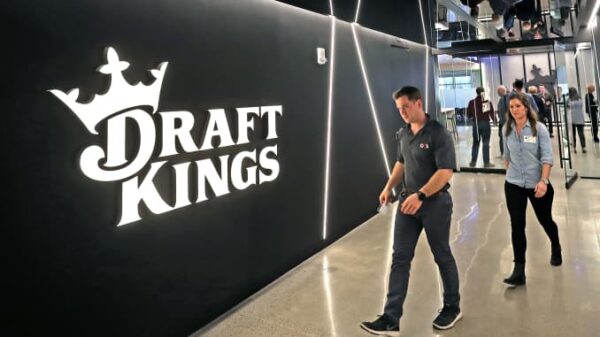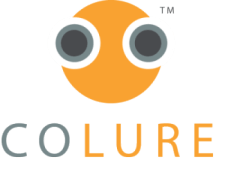Tel Aviv-based Blue Ribbon has leveraged its jackpot technology into DraftKings internet casinos and sports betting. Those are two of the DraftKings app developers’ core business competencies. Because of SPAC capitalization and direct IPO transactions, and having sold $1.15 billion worth of its convertible debt, Draft Kings has offered some of those vast proceeds for fund acquisition.

What the hell is SPAC?
SPAC stands for special purpose acquisition company. SPAC transactions are alternatives to raising capital via traditional stock market initial public offerings. In the insiders’ world of investments, SPAC transactions are essentially friendly buyouts of target companies. SPACs aren’t even real, commercially active companies. They are ventures where money is looking for companies.
How a SPAC works
High-profile investors—hedge funds, private equity and industry leaders—create a SPAC. They become the SPAC sponsors. They raise money from investors through prospectus marketing, emails, word-of-mouth, etc. The typical initial trading level is about $10 a share.
The investment money is placed into an interest-bearing trust account. That begins a campaign where the SPAC sponsors do market research looking for a company that wants to go public via acquisition—the act of taking over or gaining at least 50% of the company’s stock.
The SPAC shareholders agree to the takeover, most often structured as a reverse merger, meaning that the target company merges with the SPAC or its subsidiary. Then the SPAC shareholders can opt to redeem their shares and take a profit or hold onto the investment in the form of shares.
SPAC sponsors have two years after the initial public offering to find a company, whereupon the SPAC is disbanded and SPAC sponsors cash out. If the deal is successful, the sponsors can take over up to 20% of the company for an initial investment of only $25,000. That can mean an enormously lucrative return when the company can be worth millions.
So, the SPAC process is a cheaper, quicker, and easier way for a company to raise capital. Rather than being underwritten by banks and investment firms, the target company is essentially mentored by experienced SPAC sponsors. In the end, investors can redeem their shares if they don’t approve of the acquisition.
On the other hand, investors who buy into the SPAC’s IPO have no idea of the final target. They must enter the deal on faith. Even though the prospectus might identify a specific business or industry, the SPAC is not obligated to keep its word.
Also, the two-year deadline for closing the deal means that investors must be patient. The delayed deadline could also create conflicts of interest if SPAC sponsors succumb to impatience and throw due diligence to the winds of stock market volatility and the historically weaker returns and in-the-red performance of common shares that occur after mergers.
Will SPACs disrupt Wall Street?

SPACs have the advantage of bypassing the substantial time, resources, reporting and underwriting through the traditional IPO process. But will they disrupt Wall Street? Colure’s social media manager Ivonne Tanbeh reached out to a number of movers and shakers in the SPAC industry to get their thoughts on the disruption. Here’s a sampling:
Q: What makes SPACs so attractive to investors?
Richard Coffin, Investment Analyst at WDS Investment Management:
“They’ve been really popular amid the current euphoria of the markets, and investment celebrities (and non-investment celebrities) have been backing certain SPACs to monetize their name/reputation, but while that may attract initial demand, at the end of the day it’s how the company actually performs and operate over time that will matter.”
Ramin Nakisa, Co-Founder at PensionCraft Ltd. (UK)
“If you buy into a SPAC, it usually has a star management team. They will be interviewed constantly by the media doing ‘will-they won’t-they’ stories about which company they are going to buy. This cult of celebrity is what has propped up the active management industry long after it became clear that it is failing to deliver what it promises”
Daniele D’Alvia, SPAC Expert and Corporate Lawyer.
SPACs are the reverse of the normal IPO procedure. Instead of an operating company seeking investors, investors seek an operating company. This is clearly irresistible and more appealing than being passive.
Q: Do you think SPACs will disrupt Wall Street?
Ramin Nakisa responded:
I don’t think this is going to disrupt Wall Street. The proliferation of SPACs is just one consequence of the huge appetite for risk following the selloff in March 2020. The traditional route of raising cash via IPOs is less attractive now because of the share price ‘pop’ the day after the company raises its money.
Richard Coffin agreed:
“SPACs have been around for a while, so I am skeptical that they will revolutionize Wall Street. Perhaps they will become more popular, but the IPO still stands as a more established and rigorous process for companies going public.”
Daniele D’Alvia predicted the 2020 SPAC boom and was awarded the Colin B Picker Prize by the America Society of Comparative Law back in 2017. He has another perspective:
“I do not see why SPACs cannot become the new alternative acquisition models, a legitimate alternative path to access public markets rather than the traditional IPOs. It cannot be denied that SPACs pose risks like any other investment, as risks cannot be completely eradicated. However, those risks can be curtailed through proper contractual risk allocation and enhanced governance.” So, whether SPACs will be an also-ran in the competition for investors, or a paradigm shift, they have something in common with mobile app developers: they are a threat to the giant big guys. Even though the little guy might not be all that small, disruption is what adds spice to the nitroglycerine of change.
If you are trying to raise capital to launch a new product or service, pay attention. Remember when Blockbuster Video and Toys“R”Us ruled their roosts? Along came Netflix and Amazon, which caused a chickenshit-storm and toppled those two monopolies.
Here at Colure, we know that the success of our agency is built upon the success and growth of your business. Contact Colure’s Mobile Marketing & App Development Team to discuss your next project or to be interviewed and featured in our next series of “Project Venus”. Let’s grow!

